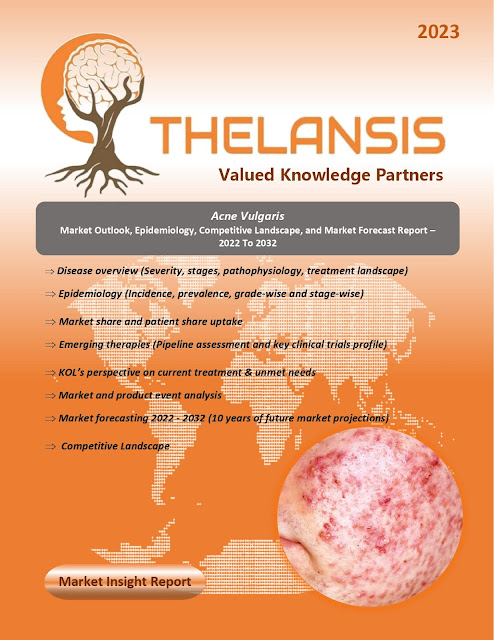BRAF Mutations in NSCLC – Market Outlook, Epidemiology, Competitive Landscape, and Market Forecast Report – 2021 To 2032
BRAF mutations are rare in non-small cell lung cancer (NSCLC); BRAF mutations are most commonly identified in lung adenocarcinoma. BRAFV600E is consistently described as the most common variant identified, present in more than 50% of cases with a BRAF mutation.
·
The BRAF Val600Glu (V600E) mutation
constitutes more than 90% of mutations in melanoma. V600E BRAF mutation shows a
great dependency on MEK activity and offers a rational therapeutic strategy for
this genetically defined tumor subtype.
·
The use of vemurafenib and dabrafenib, agents
that block MAPK signaling in patients with melanoma and the BRAF V600E
mutation, has been associated with prolonged survival and progression-free survival.
The frequency of V600E BRAF mutation in lung adenocarcinoma is 1.5% to 2.8%.
Thelansis’s “BRAF Mutations in NSCLC
Market Outlook, Epidemiology, Competitive
Landscape, and Market Forecast Report – 2021 To 2032" covers disease
overview, epidemiology, drug utilization, prescription share analysis,
competitive landscape, clinical practice, regulatory landscape, patient share,
market uptake, market forecast, and key market insights under the potential BRAF
Mutations in NSCLC treatment modalities options for eight major markets (USA,
Germany, France, Italy, Spain, UK, Japan, and China).
KOLs insights
of BRAF Mutations in NSCLC across 8 MM market from the centre of Excellence/
Public/ Private hospitals participated in the study. Insights around current
treatment landscape, epidemiology, clinical characteristics, future treatment
paradigm, and Unmet needs.
BRAF Mutations in NSCLC Market Forecast Patient
Based Forecast Model (MS. Excel Based Automated Dashboard), which Data Inputs
with sourcing, Market Event, and Product Event, Country specific Forecast
Model, Market uptake and patient share uptake, Attribute Analysis, Analog
Analysis, Disease burden, and pricing scenario, Summary, and Insights.
Thelansis Competitive Intelligence (CI) practice
has been established based on a deep understanding of the pharma/biotech
business environment to provide an optimized support system to all levels of
the decision-making process. It enables business leaders in forward-thinking
and proactive decision-making. Thelansis supports scientific and commercial
teams in seamless CI support by creating an AI/ ML-based technology-driven
platform that manages the data flow from primary and secondary sources.




Comments
Post a Comment